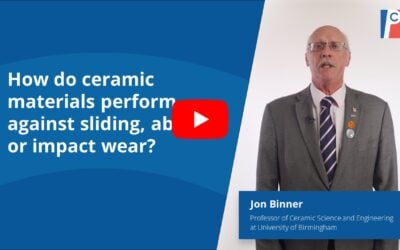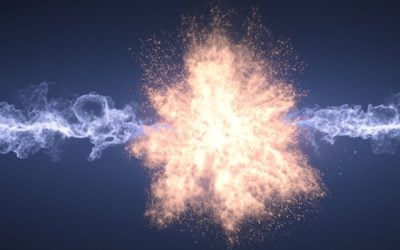Aluminum Nitride is a highly desirable material in specific applications where high thermal conductivity, electrical insulation, and/or mechanical strength is required. However, it can be very costly to produce small quantities of custom parts due to the extensive manufacturing process, setup, and tooling costs.
[separator headline=”h2″ title=”Aluminum Nitride Alternative – Shapal Hi-M Soft Machinable AlN”]
Shapal Hi M Soft is a machibale Aluminum Nitride that keeps many of the desirable properties of pure AlN, but has the added advantage of being easily machined into custom pieces. Typically, there is a tradeoff with ceramics between machability and strength; the softer and easier to machine the material, the weaker it is. Shapal is different.
Due to the way Shapal Hi M Soft is processed and its chemistry, its structure is made up of lamellar crystal particles. This special structure allows machining tools to abrade away the material much easier than typical Aluminum Nitride while preventing cracks from propagating and weakening the structure. This results in an advanced ceramic material that is both easily machined into custom parts and has high strength.
[separator headline=”h2″ title=”Custom Aluminum Nitride: Small Quantities = High Price”]
When Aluminum Nitride parts are made, they either come from a larger block and are machined out, or they are created when the material is in the softe “green” (pre-fired) state. Machining fired AlN is a very time consuming and expensive process because the material is so hard specialty diamond tooling is required. If the AlN is machined in the green state, the material is very easy to machine, however, it must be fired (where it will shrink approximately 20%) and then re-machined to achieve the correct tolerances. All of these required processes mean that small quantities are costly to make.
[separator headline=”h2″ title=”Shapal Hi M Soft Advantages”]
Shapal’s main two features are its high mechanical strength and thermal conductivity.




